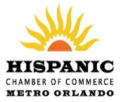




WARRANTABLE VS NON-WARRANTABLE CONDOS







Warrantable vs Non-Warrantable Condos: What Every Buyer
Needs to Know
Buying a condominium offers convenience for a lifestyle, but not all condo associations are
treated equally by mortgage programs. Lenders “warrant” certain condo projects giving
borrowers access to FHA, VA, USDA, and conventional loans while others remain “non-
warrantable,” limiting financing options. This guide breaks down the differences and shows
you how to secure financing regardless of your project’s status.
What Is a Warrantable Condo?
A Warrantable condo meets strict lender criteria, making it eligible (“Warrantable”) for a full
range of mortgage products.
Key Criteria:
•
Owner-Occupancy: under 50% of units owner-occupied
•
Reserves: Adequate capital reserves for maintenance & repairs
•
Insurance: Master policy covering 100 % of common elements
•
Litigation: No pending lawsuits against the HOA
•
Commercial Use: under 25% of total square footage used for
•
commercial purposes
Benefits of Warrantable Status:
•
Access to FHA, VA, USDA, and conventional mortgages
•
Lower down-payment requirements
•
Competitive interest rates
•
Streamlined approval process
What Is a Non-Warrantable Condo?
A non-warrantable condo fails one or more lender requirements,
disqualifying it from certain mortgage programs.
Common Reasons:
•
Excessive investor-owned or rental units
•
Insufficient reserve funds
•
Pending litigation involving the association
•
High commercial use or unconventional ownership structures
•
Developer or builder control over the HOA
Risks for Buyers:
•
Limited to portfolio or hard-money lenders
•
Higher down-payment and interest rates
•
Stricter underwriting guidelines
•
Potentially longer closing timelines
Financing Options for Warrantable Condos
•
FHA Loans: 3.5 % down; lenient credit guidelines
•
VA Loans: 0 % down for eligible veterans
•
USDA Loans: 0 % down in qualifying rural areas
•
Conventional Loans: 3% to 5 % down; flexible terms
•
Tip: Ask your loan officer to verify the project’s FHA/VA approval status early in your
search.
Financing Options for Non-Warrantable Condos
•
Portfolio Loans: Held on lender’s books; flexible criteria
•
Hard-Money Loans: Asset-based; higher rates, shorter terms
•
Bank Statement Loans: Alternative income verification
•
Wraparound Mortgages: Seller-financed structure
How to Convert a Non-Warrantable Condo
•
Boost Reserves: Increase HOA reserve contributions
•
Boost Owner-Occupancy: Encourage owner-occupancy over rentals
•
Resolve Litigations: Close or settle pending lawsuits
•
Re-Submission: Submit updated documents for FHA/VA
•
recertification
Frequently Asked Questions
•
Q: Can I get an FHA loan on a condo not on the FHA approved list? A: Not directly. You’ll
need a portfolio or hard money option or wait for FHA recertification.
•
Q: What’s the difference between a project-approval and unit-
•
approval? A: Project approval covers the entire development; unit
•
approval is case-by-case, often at higher rates.
•
Q: How long does condo recertification take? A: Typically, 60–90
•
days once complete documentation is submitted.
Ready to Finance Your Condo?
Whether you’re eyeing a warrantable community or navigating non-warrantable hurdles, 1st
Florida Lending has the expertise and programs to make it happen.
Are your ready? Call us at (800) 655-1345 or fill out our Request a Quote
questionnaire form below to speak with a Condo Financing Specialist.






© 2007 - 2025 1st Florida Lending Corp. - All rights reserved I Privacy Policy I Terms of Use I



- MORTGAGE GLOSSARY OF TERMS
- MORTGAGE CALCULATOR
- LOAN PROGRAMS
- USDA LOAN INFORMATION
- NON-QM MORTGAGE
- PRE-APPROVAL DOCUMENT-CHECKLIST
- APPRAISALS
- LEARN ABOUT CREDIT
- REPAIR YOUR CREDIT
- CLOSING COST
- REFINANCING YOUR LOAN
- MORTGAGE CREDIT EVENTS
- PMI-MORTGAGE INSURANCE
- FORECLOSURE INFORMATION
- NON-WARRANTABLE CONDOS
- THE LOAN PRE-APPROVAL PROCESS


- REQUEST RATE QUOTE
- FHA LOANS - NO DOWN PAYMENT
- BANK STATEMENT LOANS - 90% LTV
- JUMBO LOANS
- CONVENTIONAL LOANS
- PROGRESSIVE REPAYMENT MORTGAGE
- CONTRUCTION LOANS
- INVESTMENT PROPERTY LOANS - 85% LTV
- STATED MORTGAGE FOR PRIMARY -SECOND HOMES
- NO DOC FUNDING - 6 PROGRAMS
- FOREIGN NATIONAL LOANS
- ASSET BASED MORTGAGE LOAN
- FIX AND FLIP BRIDGE LOANS
- COMMERCIAL PROPERTY LOANS
- VOE MORTGAGE LOANS
- ITIN TAX ID LOAN
- USDA LOAN
- VA LOANS 100% LTV













